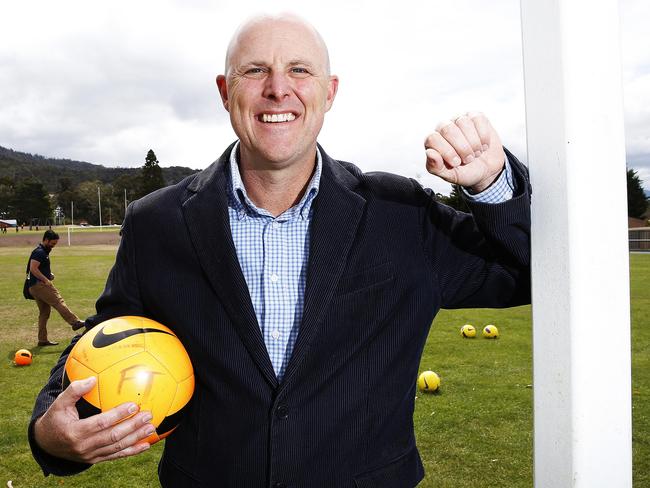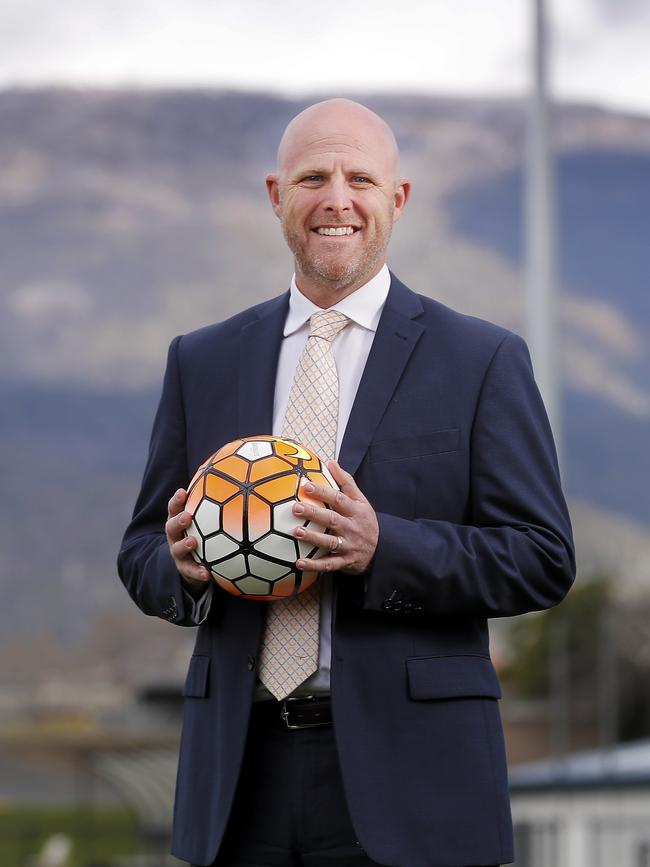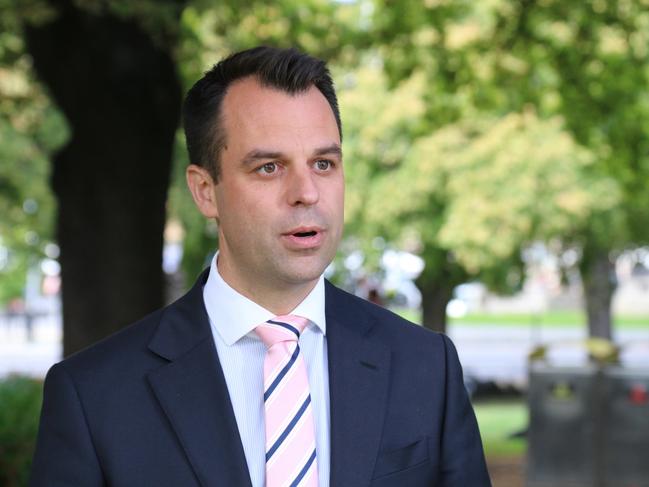Football Tasmania in talks to include code in Mac Point stadium strategy
Football Tasmania is in talks with the state government to see if the proposed Mac Point stadium would be able to accommodate the round ball code as well as AFL, paving the way for a state A-League team. LATEST >

Tasmania
Don't miss out on the headlines from Tasmania. Followed categories will be added to My News.
Football Tasmania is in talks with the state government to see if the proposed Macquarie Point stadium would be able to accommodate the round ball code as well as AFL.
The revelation was unveiled in the code’s new Facilities Strategy 2023-2026.
The Facilities Strategy was designed to make sure football grounds cater for unmet demand and support the projected growth of football in Tasmania, from grassroots to elite level.
Football Tasmania CEO Matt Bulkeley said that football was the largest participation team sport in Tasmania, with around 38,000 participants, and that while the primary focus of the strategy was to support grassroots growth, it was also prepared with the view of future-proofing football in Tasmania for eventual A-League teams of its own.
“To that end, we are currently in discussions with the government about whether the Macquarie Point Stadium could be suitably configured, or whether a better and more cost-effective option would be a 7-10,000 seat ‘show pitch’ at the Southern Regional Hub, which could cater for A-League and other representative level games,” he said.

A rectangular football stadium has been pushed by other politicians in the past.
Both anti-stadium campaigners, Federal member for Clarke Andrew Wilkie and Labor leader Rebecca White previously called for a soccer stadium in Hobart.
Mr Wilkie campaigned for a stadium in 2018.
Then he called on the state government and the prime minister to support the move to bolster the sport and the state.
But now Mr Wilke thinks differently.
“Whether or not the proposed Macquarie Point stadium might be configured for the round ball game is in my opinion beside the point because I oppose a stadium at Macquarie Point, just as I oppose spending so much money on any stadium at this particular time,” Mr Wilkie said.
“Yes, I did advocate a number of years ago for a rectangular soccer stadium.
“However this was during very different circumstances, for a facility requiring about $40m of public funding, to be located at a sensible site and, crucially, for what would be the state’s first and only A-League standard facility.

“I am not advocating for such a facility at this time due to the dire economic conditions and the crises in health and housing, among other difficulties.”
Labor went to the last election promising to build a rectangle stadium in Hobart if elected.
Late yesterday Josh Willie, as Shadow Minister for Sport, didn’t categorically rule one out but hosed down the idea.
“Since the last election the Liberals have racked up record deficits and debt and they just lost nearly $1 billion in GST revenue through Treasurer Ferguson’s incompetence,” Mr Willie said.
“There is no tangible rectangular pitch proposal, and if there is, the Liberal Government should be upfront about the cost blowouts for the Macquarie Point Stadium.
“Tasmanian Labor has been very clear that our priorities are addressing the cost of living, health and housing.
“We’ll consult with stakeholders like Football Tasmania on their needs and aspirations in the lead-up to the next election.”

In contrast Premier Jeremy Rockliff was enthusiastic about the Football Tasmania proposal.
“We’ve always said Mac Point will be multipurpose and able to be used for a range of different events, including the world game,” Mr Rockliff said.
“Having a world-class stadium means Tassie would finally be on the map for sporting events that have bypassed us in the past, such as international football games – giving Tasmanians the same opportunities that mainlanders have enjoyed for decades.
“It will also provide a world-class venue for A-league games, including potentially a Tasmanian A-league side, and we will continue working productively with the A-Leagues on future licence opportunities.”
Mr Bulkeley said central to the football strategy was the development of three Regional Hubs around the state, with the Southern Regional Hub to be the Home of Football.
He said the Regional Hubs would be community and grassroots facilities with a focus on accommodating growth, particularly in women and girls’ participation.
“Football in Tasmania is growing across all categories and is expected to continue to grow,” he said.
“The FIFA Women’s World Cup in Australia and New Zealand this year will add to that demand, and we want to ensure that participants – particularly women and girls – aren’t turned away due to the lack of suitable facilities.
“That is why the strategy also includes a focus on continued local facility renewal across the state, including through gender appropriate amenities, lighting upgrades, and hybrid and synthetic surface technology.”
Mr Bulkeley said Football Tasmania would now liaise with clubs, footballers, all levels of government and the broader community about the strategy.
More Coverage
Originally published as Football Tasmania in talks to include code in Mac Point stadium strategy





